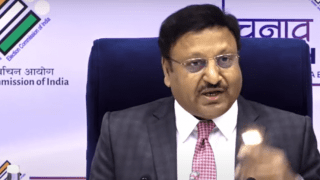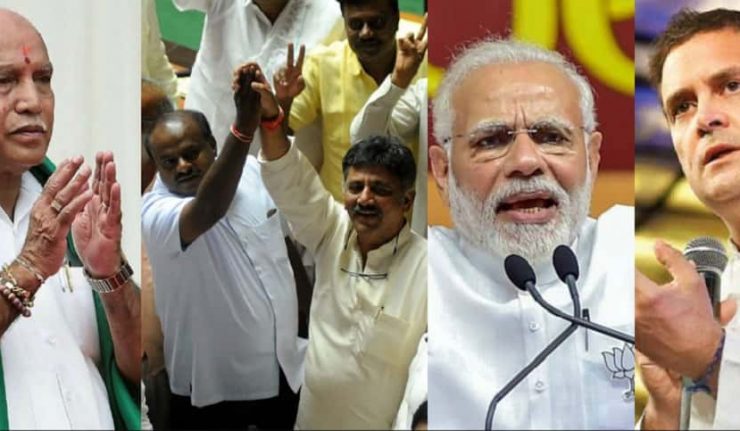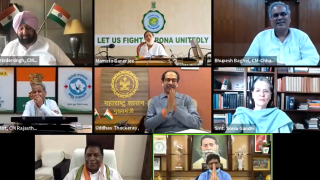‘Saam, Daam, Dand and Bhed’ – Prime Minister Narendra Modi-led Bharatiya Janata Party (BJP) tried everything it could to secure power in one of the last bastions of the Congress party to gain the momentum ahead of 2019 Lok Sabha elections, but the gambit failed at the final hurdle. The Chanakya-Niti couldn’t cobble together the requisite numbers against JD(S)-Congress combine, even after non-stop politicking and dramatic twists and turns – both inside and outside the Supreme Court.
The BJP emerged as the single largest party in the Karnataka assembly election with 104 seats but fell short of the majority. The Congress bagged 78 seats, the JD(S) 37 and others won in three constituencies, which led to a hasty post-poll alliance.
The outcome of Karnataka election not only boosts the idea of a united Opposition front but also sends a strong message to BJP – If necessary, the Opposition parties, irrespective of their ideological differences can come together, to try and stop the Modi juggernaut in 2019.
The Karnataka results is also a lesson for the Opposition. If they want to be on top of the game, they need to keep their script ready in advance. The BJP is known to apply every principal to gain power and it doesn’t matter if they are the single largest party or not.
The ‘Chanakya’ and Shah of polls is known to change the tide and turn the table, and it has been repeatedly seen in Goa, Manipur and Meghalaya where they have formed governments despite not having the requisite numbers.
Though the Karnataka election dealt a severe blow to Modi’s plan to expand his party’s influence outside its strongholds, the real test for JD(S)-Congress combines starts now. The Congress party even after bagging 78 seats, has chosen to give ‘unconditional support’ to JD(S), but the future of this alliance depends on how these two parties reach an agreement on power sharing.
Several political commentators, during highly-vocal television debates raised questions over the stability of this alliance. Wherever there have been such last-minute alliances, there have been in-fighting over the power distribution. Therefore, the functioning of this alliance, their coordination without conflicts and decision-making will be tested time and again, at least till the general elections.
After Saturday’s drama, Mamata Banerjee, the TMC chief mooted a federal front of regional parties. “Democracy wins. Congratulations to Karnataka. Congratulations Deve Gowda Ji, Kumaraswamy Ji, Congress, and others. The victory of the ‘regional’ front,” she said in a tweet. Telangana chief minister K Chandrasekhar Rao has also been pushing for the alternative of a federal front of regional parties, however, the possibility of is very minimal.
To defeat BJP, all opposition parties will have to unite or perish. However, there’s also a grey-area in post-poll coalition politics. The chances of defection and ‘horse-trading’ where attempts are made to poach Opposition winning candidate into the fold are high. Therefore, it is important for the Opposition to form pre-poll alliances wherever required.
It is also a learning for the grand-old party to allow other parties legitimate space to face or avoid the situation like Karnataka, and it may have to give in to the demands of the smaller party. Irrespective of what the outcome of the election has been, the grand-old party suffered another blow under Rahul Gandhi’s leadership as it seat share came down from by 43 as compared to the previous election, though it was placed on the top of the vote-share with 38%. The BJP, which has 26 more seats than the Congress, settled at 36.2% votes. The HD Deve Gowda led JD(S) was a choice of 18.3% voters. Mayawati’s BSP, which contested on 18 seats in alliance with the JD(S), secured 0.3% of votes as it won one seat.
In recently held by-polls too it was seen that wherever the Opposition joined hands, the outcome has been positive for them. The Samajwadi Party (SP) and Bahujan Samaj Party (BSP), which contested separately during UP polls and lost to BJP, emerged winners after joining hands for the two by-polls in Gorakhpur and Phulpur. In Bihar, the JD(U) which contested by-elections after joining hands with the BJP, lost the Jahanabad assembly segment by a margin of over 35,000 votes.
With changing time, the Congress party seems to be learning the art of ‘selling’ its message and utilising its able leaders. The BJP could have easily won the game, had Congress party not acted swiftly and move the pawns unlike Goa, where it couldn’t form the government even after emerging as the single largest party. There were distinct efforts to ensure there was no repeat of the Goa fiasco.
The JD(S)-Congress put the hard fight to keep the flock together. Wasting no time, UPA convener Sonia Gandhi reached out to JD(S), senior Congress leaders Ashok Gehlot and Ghulam Nabi Azad were rushed to Karnataka, while Abhishek Manu Singhvi knocked on the SC doors at midnight.
D Shivakumar, who is praised for saving Vilasrao Deshmukh in 2002 and Ahmed Patel during last year’s Rajya Sabha elections, ensured that missing MLAs — Pratap Gouda Patil and Anand Singh don’t switch to BJP and brought them back in the assembly just minutes before the floor test, forcing Yeddyurappa to concede defeat. For now, the Modi-Shah duo call for an ‘Opposition-free’ India will have to wait. A cracking 2019 awaits us.
This article was first published in dnaindia.com



